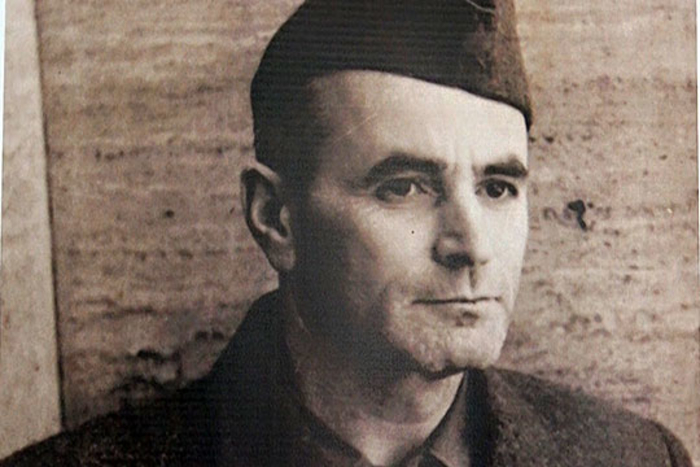Macedonia commemorates 62 years since the death of its first President, Metodija Andonov – Cento, the heroic World War Two resistance leader who was prosecuted after the post-war Communist take-over. The persecution of his family was renewed under the Zaev regime, which recently sentenced his great-grandson Jane Cento to 15 years in prison in a political show trial.
Metodija Andonov – Cento was the patriarch of a mercantile family from Prilep who became politically prominent in the 1930-ies, when he ran for member of Parliament on a platform pushing for greater rights for Macedonians within the then Kingdom of Yugoslavia. He was nearly executed by the Yugoslav regime for his activism in 1941, the persecution cut short only by the German invasion.
Cento refused the approaches from the Bulgarian authorities in 1941 and joined the resistance after being arrested several times. He quickly established himself as the leader of the resistance and pushed for unification of Macedonia after the war. In the 1944 ASNOM assembly, when resistance leaders declared a Macedonian state, Cento was elected as President of its Presidium, making him the first de-facto President of Macedonia.
But, shortly after the liberation, a Communist take-over was ordered from Belgrade. Cento refused Tito’s plan to send the ill-equipped guerrilla forces into a pitched battle against left-over German forces in Vojvodina, demanded financial independence for Macedonia within Yugoslavia and rejected the return of Serbian colonists settled prior to the war. All the while he entertained the idea of an independent Macedonian state under the protection of the Western powers, which would be the base for unification of the whole of Macedonia partitioned in 1913 and which would stay out of the spread of Communism.
In 1946 he was pushed to resign as President and shortly after he was arrested, with a kangaroo court sentencing him to 11 years in prison for an alleged attempt to flee to Greece. He served 9 and a half years in strictest conditions in the Idrizovo prison, where he developed health issues. His request to be allowed to leave for Switzerland for treatment after his release was rejected and he died on July 24th 1957 in Prilep.
The sentence was officially annulled in 1990 and he was awarded a posthumous medal by President Gjorge Ivanov in 2010. Cento’s family remained a thorn in the side of the opponents of a sovereign and independent Macedonia, who were resigned to watch as the public carried out his rehabilitation and embraced him as a heroic figure, with public institutions and a major suburb in Skopje named after him even before he was officially rehabilitated. One of the main political prisoners arrested by the Zoran Zaev regime is his great-grandson Jane (Yane) Cento, who was sentenced to 15 years in prison on “terrorism” charges, for participating in the April 2017 protest in the Macedonian Parliament. Jane Cento rejected the offer of amnesty, insisting to stand trial, even as he was assaulted by prison guards.





Comments are closed for this post.